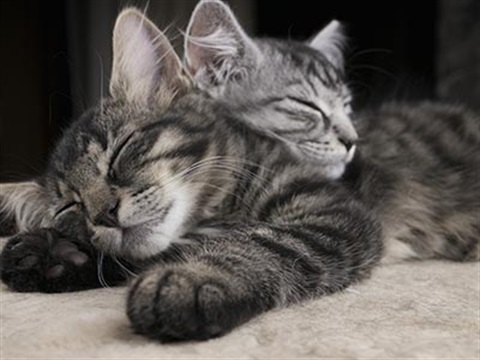Owning a cat

Cats make great pets and owning one can be very rewarding. Contrary to popular belief, cats don’t need to roam as long as their basic needs are met.
Being a responsible cat owner means protecting your cat, other people’s pets, and the environment, and, in accordance with the Domestic Animals Acts 1994, ensuring your cat is registered and microchipped once it is over three months of age.
Cat curfew and prohibited areas
From 1 July 2020, Council's Dog and Cat Control Order 2019:
Find out more:
Why do I need to confine my cat?
When cats are outdoors they can attack wildlife, get hit by cars, be injured or injure other cats, and spread disease. They can also spray, howl, and annoy neighbours and their pets, especially during mating season.
Aside from being a legal requirement, there are many benefits to containing your cat:
- It will be healthier and live longer. It is less likely to be involved in an accident or be exposed to potentially fatal diseases.
- It is less likely to get lost (saving a trip to the pound).
- It won’t annoy neighbours.
- Less hunting and predation of wildlife, which helps the Macedon Ranges environment flourish.
Long term benefits
Council recognises that making cat safe changes to your home will likely involve some degree of physical and financial effort. In comparison, the cost of vet care due to road traffic accidents, cat fights and more can be huge. The money and time you spend making changes to your home and your cat’s routine now, will be certain to reward you over your cat’s lifetime.
Helpful links
How to train your cat to stay inside
Cats can be confined to your property in one or more of the following ways:
- Indoors
- Cat run or specially designed enclosure
- Enclosing part of a property, e.g. a verandah
- Cat proof fencing
- In a shed (well ventilated/ insulated)
It may seem challenging to transform a free-roaming cat into a safe and happy cat that stays inside, but it is possible.
Not sure where to start? We have worked closely with Dr Emma Hughes BSc; BVSc; MSc; MANZCVS (Veterinary Behaviour) of Better Behaviour Veterinary Services, on the topic of “Training your cat to stay inside”. Together we compiled some useful information and resources including our "Training your cat to stay inside" brochure which will be available soon. Loaded with information and hints around confining your cat/s, you can also pick up a hard copy at your local vet, pet supply store, or by calling (03) 5422 0333.
Useful links
Feeding references
Cat trees and platforms
- PetHelpful: An informative website on how to “Make Your Own Cat Trees, Towers, and Other Structures”
Boredom busters and DIY for cats
Bird-safe collars for cats
If you’re a cat owner who lets your cat/s enjoy your garden, you should consider how to protect wildlife visiting your garden too.
The Macedon Ranges is abundant with beautiful bird species and cats (even domestic pets) often hunt and kill birds.
A simple solution to this problem can be found in bird-safe cat collars, which are colourful collars, safely designed to fall off under pressure, but successful in scaring away birds. Birds are able to see bright colours exceptionally well, due to their unique eye anatomy. While wearing a bird safe cat collar, the bird will likely escape before your cat can pounce. The fact your cat looks like a cute little clown is just an added bonus!
Search 'bird safe cat collars' online for Australian stockists, or ask your local pet supply store if they stock them.
Cat trap hire and wandering cats
Information about cat trap hire and managing issues with cats wandering in your neighbourhood is available at: Animals at large
Cat curfew background and consultation
The Paws for Thought consultation into the review of dog on-and-off leash areas and the potential introduction of a cat curfew in the shire was held in late 2018.
Almost 700 community members completed an online survey with an extensive amount of comments being provided, and nearly 100 people provided comment on the interactive mapping tool that identified proposed dog off-leash areas. Our industry partners also provided feedback via a survey, written submissions were received, and numerous comments posted on Council’s social media. A community forum was held in Woodend where people were able to provide feedback face-to-face.
We were thrilled with the amount of feedback received on the proposed options and would like to sincerely thank the community for their input.
Council adopted the recommendations contained in the Dog on and Off Leash and Cat Curfew Review at the Ordinary Council Meeting in March 2019:
Following this, the official Dog and Cat Order 2019 - Domestic Animals Act 1994 (incorporating Schedules 1 and 2) was endorsed by Council on 27 November 2019:
This order came into effect on 1 January 2020, introducing designated on-and-off leash areas.
As of 1 July 2020 the order introduced a sunset to sunrise cat curfew. Note: the Order cannot require cats to be kept indoors, it can only require confinement to the premises.